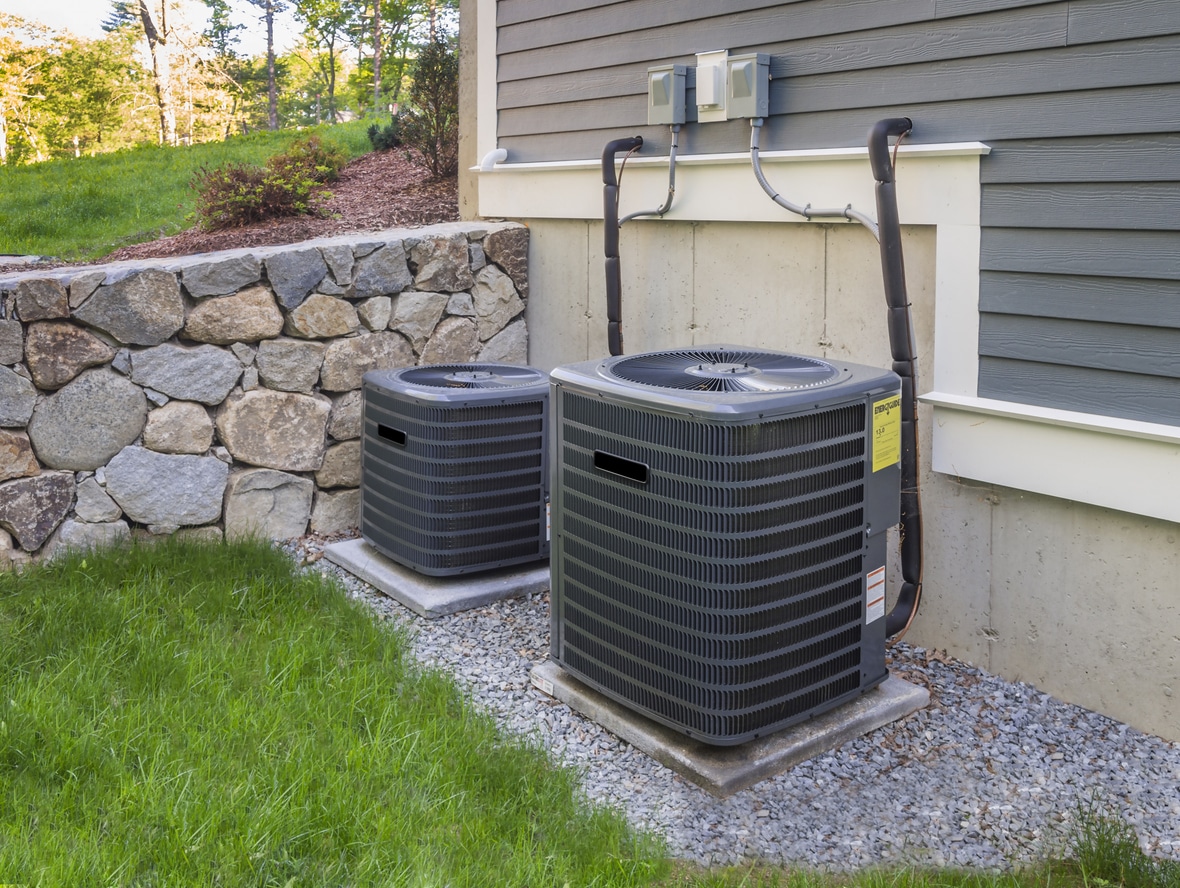How to Fix/Prevent Your AC From Freezing Up
There’s nothing worse on a sweltering summer day than discovering your air conditioner isn't blowing cold air, and upon inspection, you find a block of ice encasing its coils. An AC freezing up is a common and frustrating problem for many homeowners, leading to discomfort and potentially costly repairs if not addressed promptly. When your AC freezing up occurs, it essentially shuts down its cooling capabilities, leaving you in the heat. This comprehensive guide will delve into the reasons why your AC freezing up happens, how to effectively fix it, and, most importantly, how to prevent your AC freezing up from happening again.
Why is Your AC Freezing Up? Understanding the Root Causes
Before we can fix an AC freezing up, we need to understand why it's happening. The core issue behind an AC freezing up is usually related to insufficient airflow over the evaporator coil or a problem with the refrigerant itself. When airflow is restricted or the refrigerant pressure is too low, the coil gets excessively cold, dropping below freezing point and causing condensation on its surface to turn into ice.
Here are the most common culprits behind an AC freezing up:
Dirty Air Filters: This is arguably the most frequent cause of an AC freezing up. A clogged air filter restricts the amount of air flowing over the evaporator coil. Without enough warm air to absorb the cold produced by the refrigerant, the coil's temperature drops too low, leading to an AC freezing up. Think of it like trying to blow air through a stuffed-up nose – it's just not efficient.
Low Refrigerant Levels (Leaks): Refrigerant is the lifeblood of your AC system, responsible for absorbing heat from your home and releasing it outside. If your system has a refrigerant leak, the pressure inside the coils drops. This lower pressure causes the refrigerant to expand and cool more rapidly than it should, making the evaporator coil much colder than its design temperature, thus an AC freezing up is inevitable. A low refrigerant level is a serious issue that often requires professional intervention.
Blocked Condensate Drain Line: While less directly related to the freezing part, a blocked condensate drain line can contribute to an AC freezing up. When the drain line is clogged, the water that condenses on the evaporator coil has nowhere to go. This standing water can then freeze on the coil, exacerbating the problem of an AC freezing up.
Dirty Evaporator Coils: Over time, the evaporator coil itself can accumulate dirt, dust, and grime. This layer of insulation acts as a barrier, preventing the coil from properly absorbing heat from the air. When the coil can't efficiently exchange heat, its temperature plummets, causing an AC freezing up. This is particularly common in systems where air filters aren't changed regularly.
Restricted Air Ducts or Vents: Just like a dirty air filter, blocked or closed vents, or obstructions within the ductwork, can severely limit airflow over the evaporator coil. If air can't properly circulate, the coil gets too cold, leading to an AC freezing up. This can happen if furniture is placed over vents, or if ducts become kinked or disconnected.
Blower Motor Issues: The blower motor is responsible for pushing air across the evaporator coil and throughout your home. If the blower motor is malfunctioning, running slowly, or failing entirely, insufficient airflow will result, making your AC freezing up a strong possibility.
Faulty Thermostat Settings: While less common, an incorrectly set thermostat can sometimes contribute to an AC freezing up. If your thermostat is set to an extremely low temperature for an extended period, especially in very humid conditions, your system might struggle to keep up, and the continuous operation at a low set point could lead to an AC freezing up.
Operating AC in Cold Weather: Running your air conditioner when outdoor temperatures are too low (typically below 60 degrees Fahrenheit or 15 degrees Celsius) can cause an AC freezing up. AC systems are designed to operate within a specific temperature range, and when the ambient temperature is too cold, the refrigerant doesn't have enough heat to absorb, causing the coil to overcool.

How to Fix Your AC From Freezing Up
If your AC freezing up is already an issue, don't panic. Here's a step-by-step guide to address the problem:
- Turn Off Your AC System Immediately: The very first thing you need to do when your AC freezing up is to shut it down. Turn off the thermostat and, if possible, switch off the power to the outdoor unit at your breaker box. This allows the ice to melt naturally and prevents further damage to the system, particularly the compressor. Running an AC with a frozen coil can severely damage the compressor, leading to very expensive repairs.
- Allow the Ice to Melt: This is the most crucial step. It can take several hours, or even a full day, for all the ice to melt, depending on the severity of the freeze-up. You can speed up the process by turning on the fan-only mode on your thermostat (if your system allows for it and the outdoor unit is off). This circulates ambient air over the coil, helping to defrost it. Do not try to chip away at the ice with sharp objects, as this can damage the delicate coils and fins. You'll likely see a puddle of water around your indoor unit as the ice melts, so be prepared with towels.
- Check and Replace Your Air Filter: Once the ice has melted, the next step in fixing your AC freezing up is to address the most common cause. Inspect your air filter. If it's dirty and clogged, replace it with a clean one. Air filters should typically be changed every 1-3 months, or more frequently if you have pets or allergies. This simple step can often resolve an AC freezing up issue.
- Inspect Evaporator Coils for Dirt: If the air filter was clean, or even if it wasn't, take a look at the evaporator coil itself. If it’s covered in a layer of grime, it needs to be cleaned. You can often clean minor dirt with a soft brush or a coil cleaner specifically designed for AC coils. For heavily soiled coils, professional cleaning is recommended.
- Clear the Condensate Drain Line: Locate your condensate drain line, which is usually a PVC pipe extending from your indoor unit. Check for any blockages. You can often clear minor clogs by pouring a cup of distilled vinegar mixed with water down the drain line (if accessible). For more stubborn clogs, a wet/dry vacuum can be used to suction out the blockage.
- Check for Blocked Vents and Ducts: Walk around your home and ensure all supply and return air vents are open and unobstructed. Move any furniture that might be blocking airflow. If you suspect issues within your ductwork, such as leaks or disconnections, this will likely require professional assistance.
- Monitor Your System After Restart: Once you've addressed these potential issues and the coil is completely defrosted, turn your AC system back on. Set the thermostat to a reasonable temperature and monitor its performance closely. Listen for unusual noises and check if cold air is flowing consistently.
If these steps do not solve your problem, reach out to City Wide Heating and Air Conditioning Inc. today to have a professional inspect your unit and get everything back in working order!

Preventing Your AC From Freezing Up: Proactive Measures
Prevention is always better than cure, especially when it comes to your AC freezing up. By taking a few proactive steps, you can significantly reduce the likelihood of experiencing this problem.
Regular air filter replacement: This cannot be stressed enough. Changing your air filter regularly is the single most important preventative measure against an AC freezing up. Mark your calendar or set reminders. A clean filter ensures optimal airflow and prevents your AC freezing up due to restriction.
Schedule annual professional AC maintenance: Just like your car, your AC system benefits from regular tune-ups. A professional HVAC technician can identify potential problems before they lead to an AC freezing up. During a maintenance visit, they will:
- Clean evaporator and condenser coils.
- Check refrigerant levels and inspect for leaks.Inspect electrical components.
- Test the thermostat.Ensure proper airflow.
- Clear the condensate drain line.
- Address any minor issues that could lead to your AC freezing up.
Keep evaporator coils clean: Even with regular filter changes, some dirt can accumulate on the evaporator coils. During your annual maintenance, your technician will clean these. If you're comfortable, you can also gently clean them yourself with a soft brush between professional visits.
Ensure proper refrigerant levels: While you can't check this yourself, your HVAC technician will during maintenance. If your system is low on refrigerant, it indicates a leak that needs to be located and repaired, not just topped off. Addressing leaks prevents future instances of your AC freezing up.
Maintain clear condensate drain lines: Regularly flush your condensate drain line with a mixture of distilled vinegar and water to prevent algae and mold growth that can lead to clogs.
Maintain unobstructed airflow: Ensure all indoor vents and outdoor units are clear of obstructions. Don't block return air vents with furniture or drapes, and keep the area around your outdoor condenser unit clear of debris, plants, and anything that could restrict airflow.
Avoid setting the thermostat too low in cold weather: If outdoor temperatures are consistently below 60°F (15°C), refrain from running your AC. Your system isn't designed for efficient cooling in such conditions, and it significantly increases the risk of your AC freezing up.
Insulate and seal ductwork: Leaky or uninsulated ductwork can lead to significant energy loss and uneven cooling, putting extra strain on your system and potentially contributing to an AC freezing up. Sealing and insulating ducts improve efficiency and airflow.
When to Call a Professional
While many of the preventative and minor fix steps can be done by homeowners, there are times when professional help is essential when your AC freezing up. You should call an HVAC technician if:
- You suspect a refrigerant leak: Refrigerant is a hazardous chemical, and handling it requires specialized tools and training.
- The AC freezing up problem persists after you've tried the DIY fixes.
- You hear unusual noises coming from your AC unit.
- The blower motor isn't working correctly.
- You're uncomfortable performing any of the maintenance tasks yourself.
- Your AC is old and has a history of repeated freezing issues.
How to Keep your AC from Freezing
An AC freezing up is a common problem, but one that is largely preventable with proper maintenance and attention. By understanding the causes, knowing how to thaw your system safely, and implementing proactive preventative measures, you can ensure your air conditioner operates efficiently and keeps your home cool and comfortable all summer long. Don't let your AC freezing up leave you in a sweat – City Wide Heating and Air Conditioning Inc. can protect your investment and ensure you enjoy uninterrupted cooling!